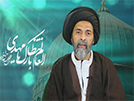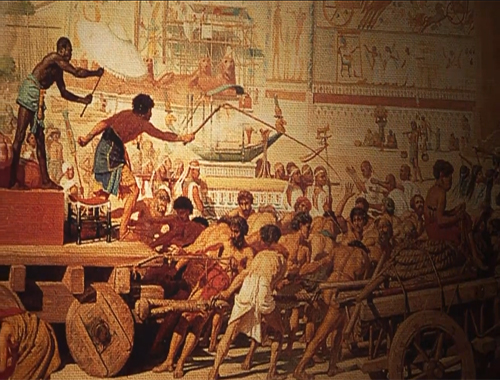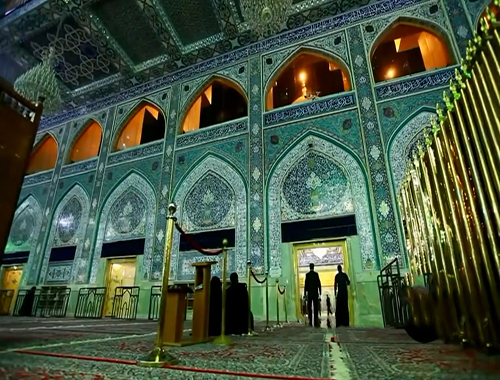An exemplary confidant
- Details
- Hits: 2916
An exemplary confidant
It is appropriate to mention an exemplary trustworthiness at this point. When Hazrat Imam Husain (a.s.) reached a spot called, ‘HÄjiz’ he wrote a letter to Muslim Ibn AqÄ«l and the Shias of Kufa. He wrote:
“From Husain Ibn ‘Ali (a.s.) to his Muslim and Mu’min brothers. Peace be upon you all. Praise be to Allah besides Him there is no deity. I have received Muslim’s letter. He has informed me of the glad news that you all are united to support me and prepared to fight for my right. I pray to Allah for your favourable consequences. May He reward you for this stand of yours. I have left Mecca on Tuesday the eighth of Zilhajj and started moving towards you. When my messenger reaches you, you must become serious and concerned in your mission. I shall come to you within a few days, InshÄllah. Peace be upon you and the Divine Mercy.”
Imam Husain (a.s.) gave this letter to Qays Ibn Musher Saidawi who set out immediately and soon reached the outskirts of Kufa. An officer of Ibn Ziyad, by the name of HasÄ«n Ibn Tamim tried to arrest him there. He at once tore up the letter of Imam Husain (a.s.). He was then taken to Ibn Ziyad. When Ibn Ziyad told him to surrender the letter he said, “I have torn it into pieces.”
“Why?” asked Ibn Ziyad.
“So that you may not come to know what was written in it.”
“To whom was it addressed?”
“To some people I am not familiar with.”
Ibn Ziyad ordered, “If you do not reveal the name, you shall have to mount the pulpit and invoke curse upon the liars.” [Ibn Ziyad was actually referring to Imam Husain (a.s.).]
Qays Ibn Musher went to the pulpit and announced, “O people! Husain Ibn ‘Ali is the best creature of Allah (S.w.T.), and the son of Fatemah (S) the daughter of the Holy Prophet (S). I am his messenger. I have left him at a place called ‘HÄjiz’. I have come to you so that you may respond to his call and support him wholeheartedly.”
Then Qays invoked curse upon Ibn Ziyad and his father. He then showered praises upon Amir ul-Mu’minÄ«n Hazrat ‘Ali (a.s.).
Ibn Ziyad ordered that Qays be taken to the wall of the palace and then thrown down. When Qays was thrown from such a height, his bones shattered but he was alive when Abdul Malik Ibn Amir beheaded him.
When Imam Husain (a.s.) learnt of Qays’ murder, his eyes were filled with tears. He recited the following ayat of the Qur’an:
“Of the believers are men who are true to the covenant which they made with Allah: so of them is he who accomplished his vow, and of them is he who yet waits, and they have not changed in the least.”
(Surah AhzÄb 33:23)
An interesting incident of trustworthiness is also recorded in the book, Riyazul HikayÄt:
A man had one thousand Tumans in a bag. He was going to the public bath, early in the morning. On the way he met a friend who was also heading towards the public bath. When they came to a junction this person separated without informing his companion. Perchance a robber was pursuing them with the intention of stealing the moneybag. When this man reached the bath the robber followed suit. The man deposited the moneybag with the bath keeper and went inside to take a bath. The bath-keeper himself thought of taking a bath. He thought that the robber who had followed the man was the latter’s friend. So he handed him the money bag and said,
“Keep this in your custody till I return after taking a bath.”
The thief remained sitting till the bath-keeper returned. Then he gave back the moneybag to him. When the bath-keeper learnt that he was not a friend of the first person he asked, “Then who are you?”
He replied, “I am a thief.”
“Then why did you not steal the money bag?”
The thief answered, “I may be a thief, but betraying trust is against manliness. While safeguarding this trust I have also remained aloof from robbery.”
This nobility impressed the owner of the moneybag, and he opened the bag and gave some money to the robber as a reward.
However, stealing is also HarÄm and it shall be discussed in the forthcoming chapter. An object may be expensive or worthless, but stealing it is absolutely HarÄm.












Comments